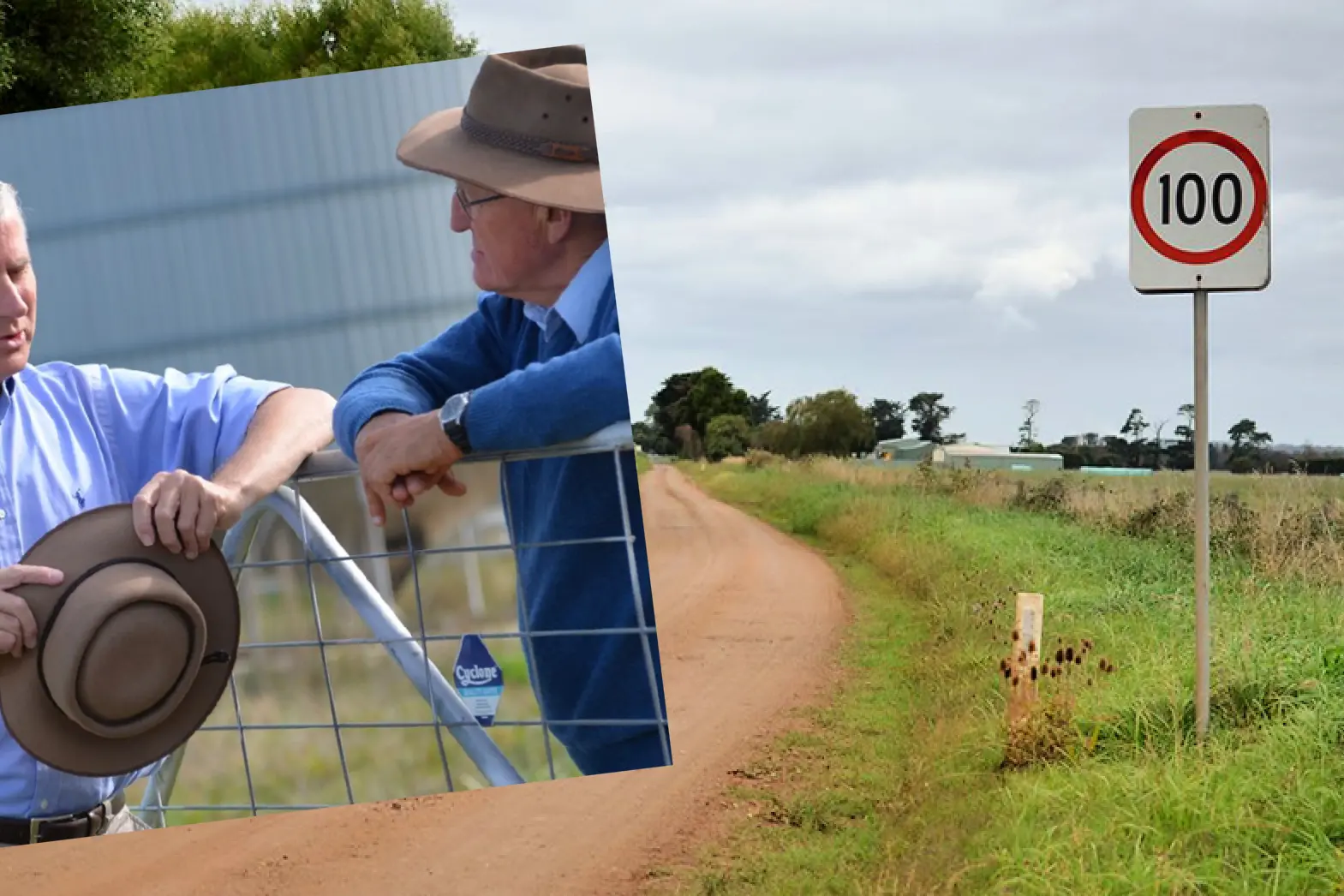PHOTO
Member for Riverina Michael McCormack has called out the Federal Government on its proposed changes to speed limits on unsigned roads, a change that will specifically affect regional and rural motorists.
The Federal Government is looking at reducing default speed limits outside of built-up areas with a Consultation Regulatory Impact Analysis (RIA).
The RIA will assess proposed changes to default speed limits on roads without a sign posted speed limit.
According to the Department of Infrastructure, Transport, Regional Development, Communications, Sport and the Arts, the RIA will no propose, nor consider, changes to any current sign posted speed limits.
A Department of Infrastructure spokesperson said the problem is the high levels of road traum that are occurring on regional and remote roads with a 10 per cent increase in road fatalities per 100,000 population over the period of 2020 and 2024.
According to the Department Australia's road fatality rate per 100,000 population was 8.5 per cent higher than the OECD median fatality rate in 2023 and 85 per cent of road deaths outside of a major city occurrent on roads with speed limits at and above 80km/h.
"Speed management is an essential component of a comprehensive road safety approach that offers practical value as a proven, cost-effective intervention," a spokesperson said.
"There is a role for governements in setting safety standards and regulation across the road network where there is risk, in order to achieve a societal benefit.
"Without action on default speed limits and other safety measures, Australia will not meet its national road trauma reduction target of halving road deaths by 2030."
The proposed reform options that are being looked at are to reduce the current spee limit outside built up areas on sealed roads to either 90km/h, 80km/h or 70km/h and on unsealed roads to 80km/h or 70km/h.
Impacts that are being taken into consideration include avoiding road fatalities and serious injuries, fuel consumption costs and emissions from fuel consumption as well as the costs of increased travel time for private, businesses and logistics and administrative Government costs, the options would also have a number of intangible social and enviornmental impacts that are not measured.
Mr McCormack has called the plan a shortcut solution to the stripping of funding.
"The Albanese Government's plan to slash default speed limits on rural roads in poor condition is a shortcut solution to the Labor-driven problem of stripping funding out of regional, rural and remote areas," he said.
"My office has been contacted several times by constituents concerned about this poorly conceived proposal, raising issues such as the increase in travel times exacerbating fatigue levels, as well as not addressing the core issue of giving Councils the resources to fix roads in poor condition."
Mr McCormack said the cutting of programs he had helped establish when he was Deputy Prime Minister, such as the Local Roads and Community Inrastructure Program, proves that the Federal Government doesn't care about the regions.
"This will only put the brakes on regional productivity and hurt those in regional areas that are already suffering from this Government's bad decisions pushing prices up and driving productivity down," Mr McCormack said.
"The only positive to come of this is that the Minister saw fit to extend the deadline to 10 November 2025, so I encourage those adversely affected by this proposal to go to https://www.infrastructure.gov.au/have-your-say/regulatory-impact-analysis-reduce-open-road-default-speed-limit and click on the 'Have your say' button about halfway down the page."





